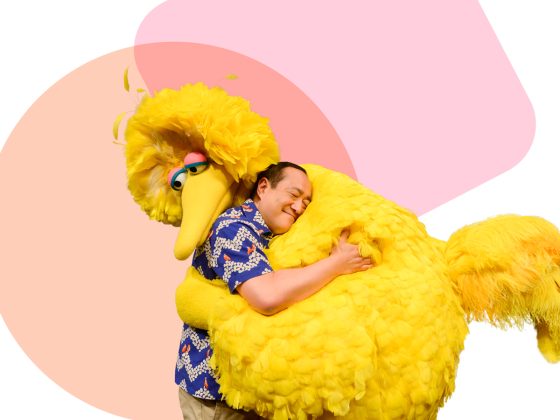
Using These Resources: Traumatic Experiences
Notes and recommendations for providers on using these trauma resources.
For decades, Sesame Street has used the power of the Muppets to help kids and families cope with tough topics. We now know that one in four children endure more than one traumatic experience, so with guidance from expert advisers, we’ve developed these resources to support you in your work with kids and families.
As a member of children’s circle of care, you hold tremendous power. You are an anchor in kids’ and families’ circle of care, and you can be a game-changer. We’re all in this together, and we can’t do it alone. Here are materials and resources that can help.
What Are Traumatic Experiences?
Traumatic experiences are events or circumstances that that threaten one’s life, mental health, or physical integrity. Trauma is the physical and emotional response to such events. Research shows that high doses of adversity, especially in early childhood, can impact brain development and therefore have serious, lifelong effects on kids’ health, well-being and sense of self. Taken together, these effects (among them depression, substance abuse, heart disease, and overall shorter life expectancy) pose the greatest public health risk of our time.
Among others, traumatic experiences include:
• emotional, physical, or sexual abuse
• emotional or physical neglect
• a parent’s addiction to drugs or alcohol
• a family member’s mental illness
• witnessing violence against one’s mother
• loss of a parent due to death, separation, divorce, or incarceration
When not addressed, these experiences can change the way kids’ brains are wired:
• They impact their ability to learn, creating obstacles to growing smarter.
• They affect their mental and physical health, so they are less likely to grow up stronger.
• They change the way they interact with the world, making it harder to be kinder.
Modeling Coping, the Muppet Way
Many of the coping and resilience-building strategies within this topic are presented by Big Bird and the Sesame Street friends whom kids already know and love.
So much healing happens within nurturing relationships, and it helps when a caring adult can teach kids important coping strategies. So, among other Muppet-adult pairs, Big Bird and his supportive adult friend Alan are happy to help model one key strategy. (Trauma is a big deal…but Big Bird’s got a big spirit, a big heart, and big dreams!)
All the materials can be used with all kids, because they teach universal resilience-building strategies for everyday challenges as well as serious ones. (They can also engage and help adults!)
Sharing With Parents
Many of the strategies in this topic are good for parents as well as kids. (Often, the best way to help kids is to help their parents, who may be coping with the effects of traumatic experiences themselves. Also, when kids experience trauma, the whole family is impacted.)
You know the needs of the kids and families you serve best, so choose which resources to share as you see fit. (Some of the materials on this site are available to parents directly; you decide which of the others you want to share with parents.)
Advisers
- Helen Egger, M.D., Chair, Department of Child and Adolescent Psychiatry, NYU Langone Medical Center; Director, NYU Child Study Center
- Barbara Duffield, Executive Director, SchoolHouse Connection
- Godwin Higa, Principal, Cherokee Point Elementary School first trauma informed/ACEs school in San Diego, CA
- Janine Hron, President, Crittenton Children’s Center
- Lucy McLellan, RDT-BCT, LCAT, LPC, Oasis Therapist, Canopy Center, Madison WI
- Rosemarie E. Perry, Ph.D., Assistant Research Scientist, Department of Applied Psychology, New York University
- Megan V. Smith, M.D., Associate Professor, Yale School of Medicine, Departments of Psychiatry and in the Child Study Center; Yale School of Public Health, Department of Social & Behavioral Sciences
- Esta Soler, President and Founder, Futures Without Violence
- Jane Ellen Stevens, Founder and Publisher, ACEs Connection Network
- M. Ann Thomas, LCSW, President/CEO, The Children’s Place
Sources
“What is Child Traumatic Stress?” The National Child Traumatic Stress Network.
Felitti, Vincent J, Robert F Anda, Dale Nordenberg, David F Williamson, Alison M Spitz, Valerie Edwards, Mary P Koss, and James S Marks. “Relationship of Childhood Abuse and Household Dysfunction to Many of the Leading Causes of Death in Adults: The Adverse Childhood Experiences (ACE) Study.” American Journal of Preventive Medicine 14, no. 4 (1998): 245–58.
“When Things Aren’t Perfect: Caring for Yourself and Your Children.” AAP Trauma Guide. 2014. https://www.aap.org/en-us/Documents/ttb_caring_for_yourself.pdf.
“Essentials for Childhood: Steps to Create Safe, Stable, Nurturing Relationships and Environments.” Centers for Disease Control. August 2014.
“Key Concepts: Toxic Stress.” Center for the Developing Child at Harvard University. 2017. http://developingchild.harvard.edu/science/key-concepts/toxic-stress/
Malchiodi, Cathy A. Expressive Therapies. Guilford Publications, 2013.
Patrik, Juslin N. “What Does Music Express? Basic Emotions and beyond.” Frontiers in Psychology 4 (2013).
Perry, Bruce D. “Resilience: Where Does It Come From?” New York Life – Children & Grief, April 2006. http://www.scholastic.com/browse/article.jsp?id=3746847.
Phelps, Don. “Therapeutic Use of Expressive Arts With Children.” Social Work Today http://www.socialworktoday.com/archive/exc_020712.shtml
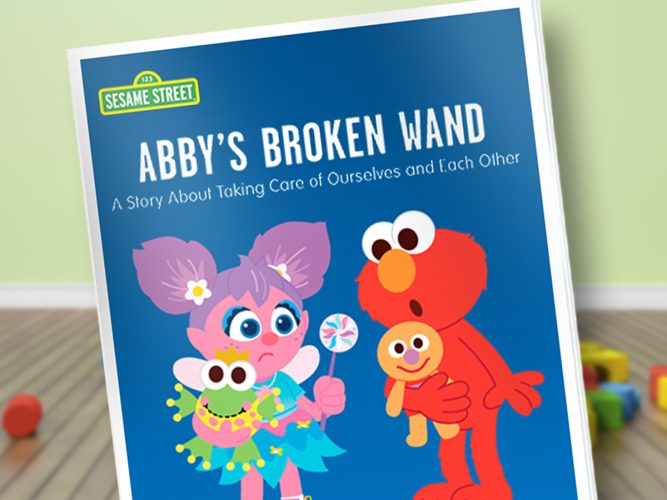
Abby's Broken Wand
A storybook featuring strategies to help children cope with big feelings.
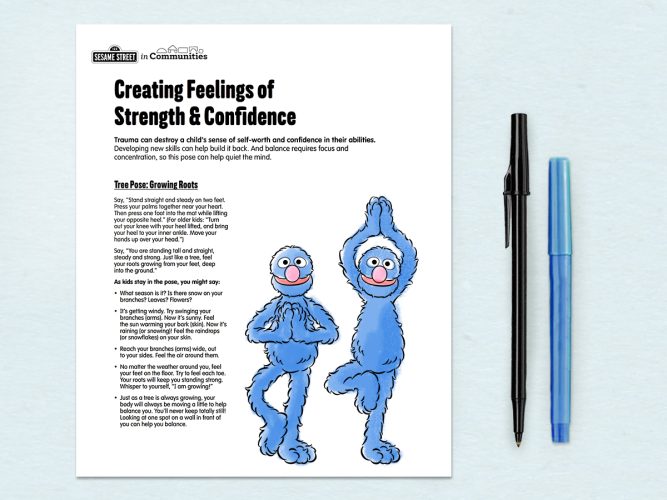
Creating Feelings of Strength and Confidence
A focused movement activity that builds confidence and a sense of groundedness.
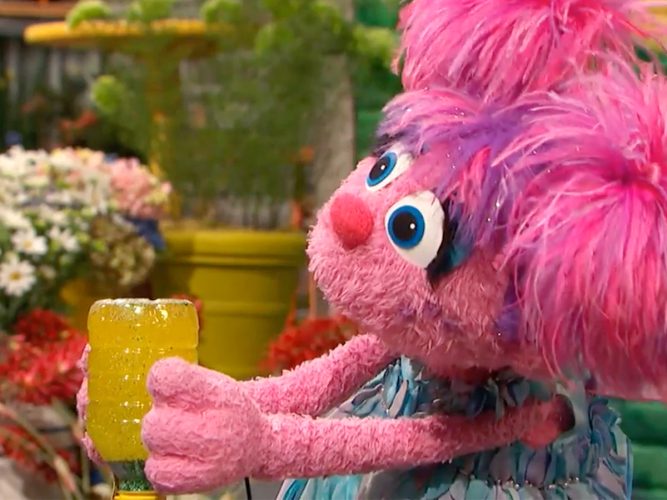
Slow Down & Settle Down
Parents and children can share ways they calm and soothe themselves. This video provides more self-care ideas.
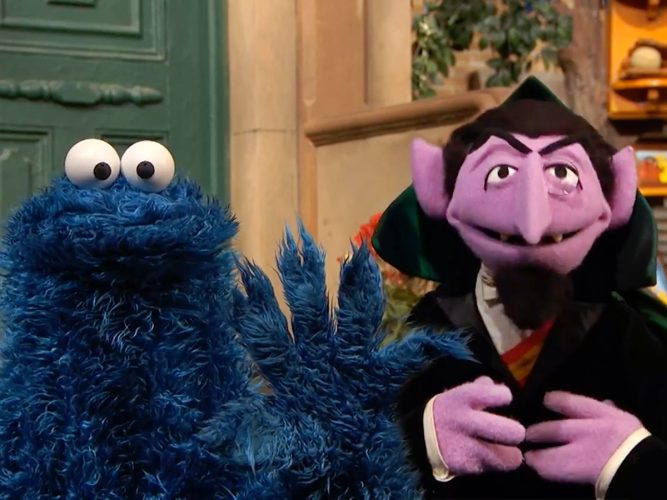
Learning How to Count, Breathe, Relax
Small things can set kids off, but you can teach them a self-soothing breathing exercise to use on their own.
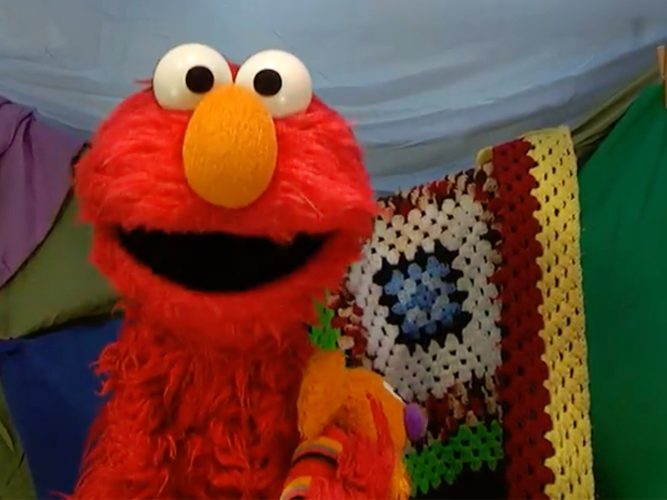
Feeling Safe
In order for healing to begin, it’s critical that kids feel protected and safe.
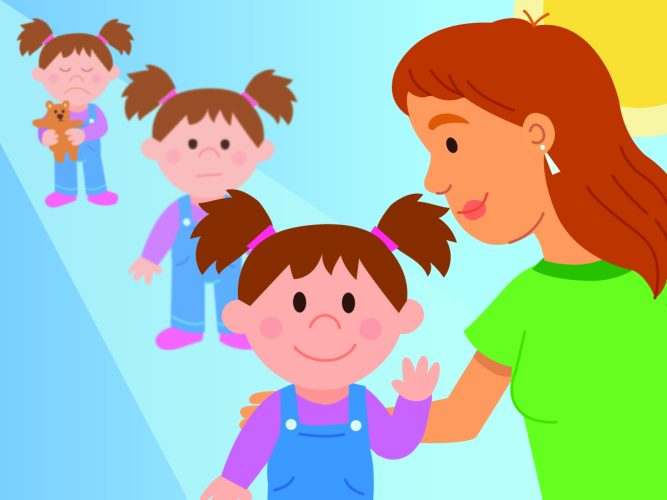
Helping Children Make Meaning After Trauma with Chandra Ghosh Ippen
Learn how young children experience trauma and what can help with Sesame Workshop’s Tara Wright, and clinical psychologist and author Chandra Ghosh Ippen.
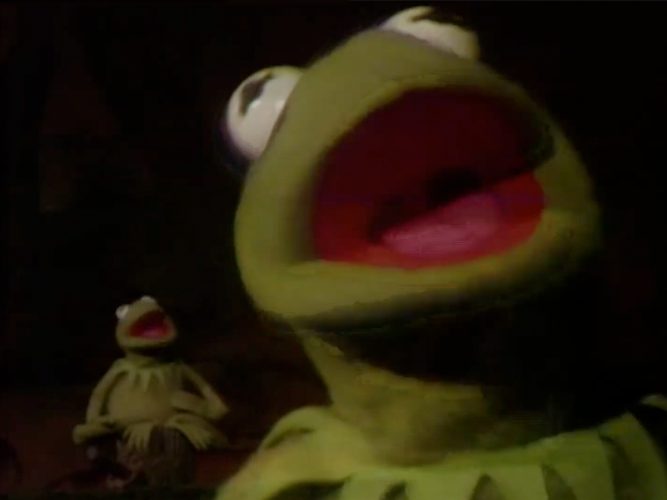
It’s Not Easy Being Green
A song about being ourselves.
